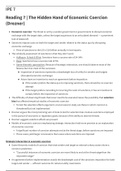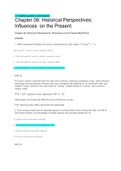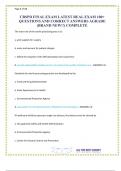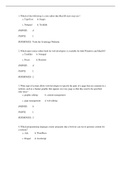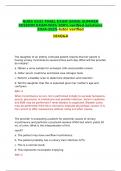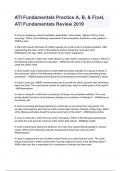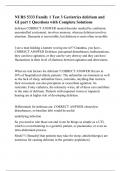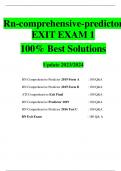College aantekeningen
IPE Lecture7: Class Notes + Summary of Drezner (International Political Economy, IRO Year 2 Block 2)
- Instelling
- Universiteit Leiden (UL)
This document contains my class notes for Lecture 7 from the International Political Economy course, which is taught in Block 2 of the second year of International Relations and Organizations. It also contains my notes from the assigned reading, The Hidden Hand of Economic Coercion by Drezner.
[Meer zien]
